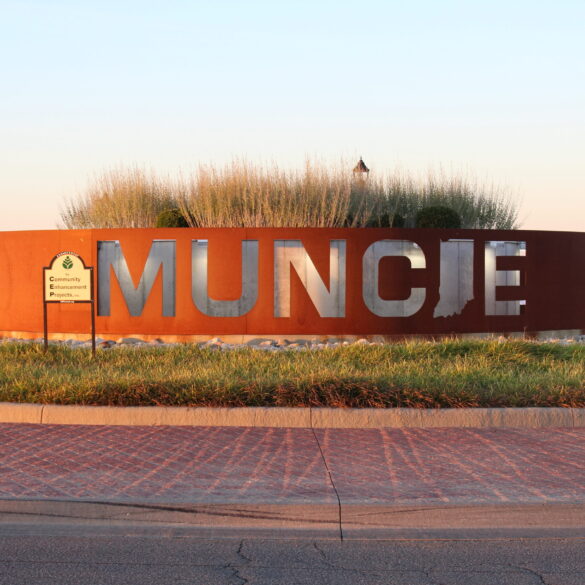Ball State students and Muncie residents have coexisted for a little over 100 years. The phrase “town and gown” is an old traditional term that refers to the gap of understanding between the residents and students of Muncie.
For years, Ball State students have been labeling Muncie residents as “mocals”, a term stemming from the combination of the words “Muncie” and “Locals”.
The relationships built between the town, city, and the university are integral to the well-being of both students and residents. However, understanding this dynamic requires a deeper dive into city-campus relationships.
Financial Interdependencies
According to Ball State’s information page, university president Geoffrey Mearns made history in 2018 by proposing that Ball State becomes the first university to financially support its local school district, Muncie Community Schools (MCS). Not only is Ball State supporting the district financially, but also entirely overseeing the school district.
This decision came after MCS faced several challenges in 2017 including low attendance numbers and financial troubles. However, after the partnership began, enrollment in MCS stabilized for the 2018-2019 school year, and in 2021-2022, MSC saw the first significant enrollment increase in 15 years.
On top of this, according to the Ball State Office of Community Engagement, the office strives to create a mutually beneficial exchange of knowledge and resources in a context of partnership and reciprocity with Muncie residents.
They support community engagement by partnering with several businesses, agencies, and organizations throughout the community of Muncie.
Issues with student-resident engagement
Historically, college towns have struggled to come to terms with the differing ideals of students versus residents. According to Scholars Strategy Network, conflicts between universities and surrounding residents arise from the contrasting lifestyles of long-term locals and transient students. As a result, lack of regular contact and communication can leave community stakeholders and students with inaccurate, stereotypically negative opinions about one another.
Military Veteran Austin Reagan has lived in Muncie for 27 years and reported several unpleasant run-ins with Ball State students.
“I’ve had my car egged while driving on campus,” says Austin. “My girlfriend actually last year had a group of students stop her on the road and start stomping on her car.”
When questioned on whether he felt Ball State students were respected or not, Austin responded that in order to earn respect, students have to give respect.
“As long as they’re not going to respect the locals, the locals will never respect them,” Austin says. “That also counteracts a lot of what the college is trying to push.”
Positive local engagements
Many people view the university’s involvement with MSC as a demonstration of their commitment to the well-being of Muncie. Some Muncie residents feel that students take away from these efforts by rarely engaging in local activities.
Assistant Lecturer of English at Ball State Zachary Dwyer expressed the need for students to get involved with “mocal” culture.
“I think something that students often forget is that there’s a lot of wonderful culture here. There is art here, all curated by ‘mocals,’” Dwyer says. “I think a good thing for students to do might be to go out and meet some of those ‘mocals’ and see what they have to say about their hometown.”
In hopes of encouraging students to wander beyond Ball State’s campus, the Office of Community Engagement connects university resources with community priorities and initiatives. Outside of campus, Destination Muncie is an organization that works to enhance the quality of life of Muncie by promoting its attractions, cultural assets, and “Hoosier hospitality.”
For more ways to get involved in the Muncie community, visit the Destination Muncie or Office of Community Engagement website.
Contact Riley Webster via email at riley.webster@bsu.edu.
Sources: Ball State’s information page, Office of Community Engagement, Scholars Strategy Network, Destination Muncie




